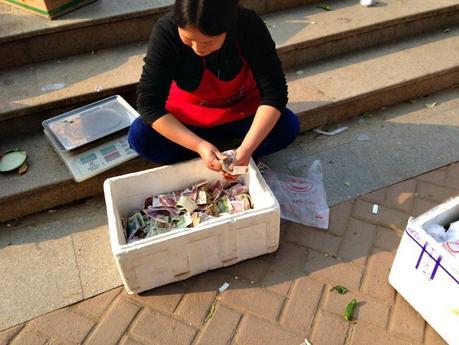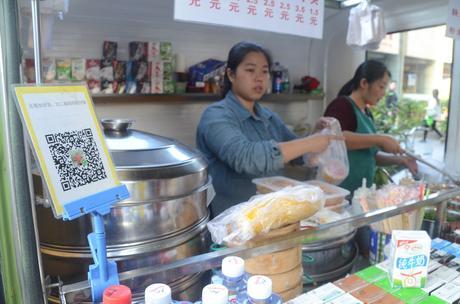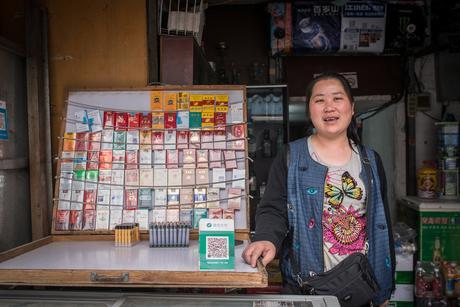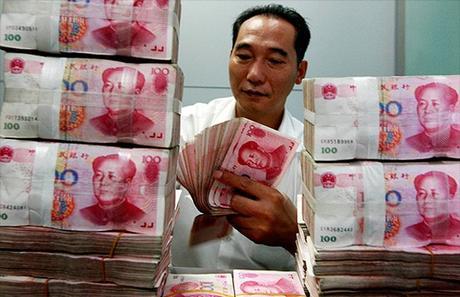 Written by Nicole Webb and Chao Huang, Edited by Nicole Webb
Written by Nicole Webb and Chao Huang, Edited by Nicole WebbLiving in China, my purse was usually stuffed with wads of cash. Sadly, not because I was super rich but because I couldn’t use my non-Chinese credit cards in any stores other than those western brands like H & M and Zara (Oh dear, you feel my pain right?). And opening a bank account in China was like pulling teeth, so cash it was all the way.
Counterfeit money is a huge problem (almost every cashier slides your notes through a scanner) so the biggest note made in China is 100RMB – which is equivalent to about US$14 – so you can imagine, this makes your wallet even fatter!
Mind you, I wasn’t alone in my cash stashing ways; as the first country to introduce paper money in the 11th century, most of the Chinese population have long been cash converts, renowned for carrying briefcases full of cash to buy everything from jewellery to cars, even houses!
A few years ago, the New York Times reported a guy showing up to a dealership in China in a beat-up old Honda carrying a black rubbish bag stuffed with cash. He bought a brand new BMW with it. In Xi’an, I heard about stories like this all the time!
But it seems that’s all changing…with China on track to become the first cashless society!
What does that mean and how does that even work?
Guest writer, my dear friend and local Chinese, Chao Huang from Xi’an, gives us the low down!
 A quick question: what do you take with you when you leave your house? Keys, wallet, and your phone, right? And people from China? I can tell you, most of the time, I just take my phone and just like me, there are now millions of people in China enjoying this cash-free life.You may have heard the news that some ardent ‘Apple’ fans in China sold one of their kidneys (sure, we have two of them – a spare one – so it isn’t that big of a deal, is it?) to buy a new iPhone 4 when the revolutionary smart phone first came on the scene, sending fans into a frenzy.Of course not everyone goes to such extreme measures and most of us keep our kidneys and settle for cheaper Chinese brands like XiaoMi, Huawei and Vivo. 😉In February last year statistics showed 1.28 billion mobile phone subscriptions had been registered in China, which means more smartphone users than the US, Brazil and Indonesia, combined. It’s an understatement to say that Chinese are now living in the People’s Republic of Digital.
A quick question: what do you take with you when you leave your house? Keys, wallet, and your phone, right? And people from China? I can tell you, most of the time, I just take my phone and just like me, there are now millions of people in China enjoying this cash-free life.You may have heard the news that some ardent ‘Apple’ fans in China sold one of their kidneys (sure, we have two of them – a spare one – so it isn’t that big of a deal, is it?) to buy a new iPhone 4 when the revolutionary smart phone first came on the scene, sending fans into a frenzy.Of course not everyone goes to such extreme measures and most of us keep our kidneys and settle for cheaper Chinese brands like XiaoMi, Huawei and Vivo. 😉In February last year statistics showed 1.28 billion mobile phone subscriptions had been registered in China, which means more smartphone users than the US, Brazil and Indonesia, combined. It’s an understatement to say that Chinese are now living in the People’s Republic of Digital.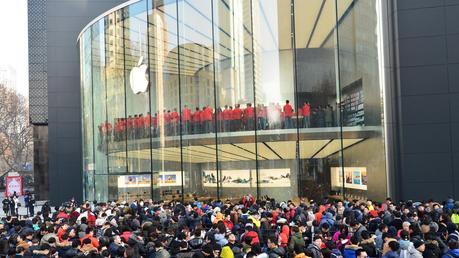 And it’s no surprise that this year a study found China’s smartphone users spent an average of 98 minutes a day using their phone. You might be wondering what we do with our phone given it’s no secret we can’t go on Twitter, YouTube, Instagram or Google?!But let me tell you, when the internet censorship Gods handed Chinese lemons, many of the smart and diligent Chinese internet companies made so much lemonade, that most of the Chinese people don’t even care about those Western websites.Super app, Taobao, is one — and if you haven’t read Nicole’s article about the company that has changed the way Chinese live, please click here. (Oh and did I tell you, I made 2.6 yuan last week just by putting my un-used money on my Alipay investment account?)Super apps in China have changed our life, blown our minds, and introduced a new era where small change and cash has been left behind.
Credit cards weren’t brought into China until the mid ’80s, so it’s fair to say, China has largely bypassed cards….and looks to be going from cash, straight to mobile!
Software and gaming giant, Tencent monopolised an entire generation of Internet users in China with its clever multi-use platform WeChat. Not only can you communicate with friends via text messaging and calls, use it as a platform to share moments and pictures but it’s also your Trip Advisor, Amazon and Uber equivalent, and most importantly, your cash card.
And it’s no surprise that this year a study found China’s smartphone users spent an average of 98 minutes a day using their phone. You might be wondering what we do with our phone given it’s no secret we can’t go on Twitter, YouTube, Instagram or Google?!But let me tell you, when the internet censorship Gods handed Chinese lemons, many of the smart and diligent Chinese internet companies made so much lemonade, that most of the Chinese people don’t even care about those Western websites.Super app, Taobao, is one — and if you haven’t read Nicole’s article about the company that has changed the way Chinese live, please click here. (Oh and did I tell you, I made 2.6 yuan last week just by putting my un-used money on my Alipay investment account?)Super apps in China have changed our life, blown our minds, and introduced a new era where small change and cash has been left behind.
Credit cards weren’t brought into China until the mid ’80s, so it’s fair to say, China has largely bypassed cards….and looks to be going from cash, straight to mobile!
Software and gaming giant, Tencent monopolised an entire generation of Internet users in China with its clever multi-use platform WeChat. Not only can you communicate with friends via text messaging and calls, use it as a platform to share moments and pictures but it’s also your Trip Advisor, Amazon and Uber equivalent, and most importantly, your cash card.
Alibaba’s Alipay digital wallet has been around since 2004 and easily trounced its US counterpart PayPal. The Alipay Wallet, currently sees 80 million transactions a day.
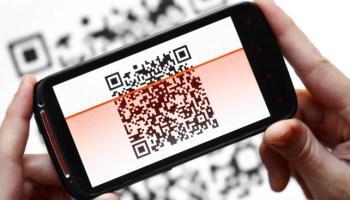
The company has cooperated with a growing number of wet markets selling fruit and veggies, to install a QR code at each stall.
What’s a QR code? It’s a Quick Response code which is a two dimensional barcode with a random pattern of tiny black squares against a white background, capable of holding 300 times more data than a traditional one-dimensional code.
Shoppers scan the code with their phones after selecting their goods.
The days of plastic buckets and polystyrene boxes filled with cash, lining the pavements are truly on their way out.
